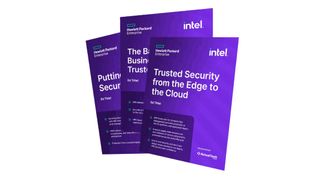Explore Security
Security
Latest about Security

What is malware?
By Connor Jones last updated
In-depth Knowing what malware is means knowing the differences between viruses, trojans, ransomware, and more

Hackers have been abusing a popular antivirus solution to crack corporate networks for five years
By Solomon Klappholz published
News Hackers have been using a sophisticated man-in-the-middle attack to exploit a vulnerability in an antivirus solution to spread backdoors on corporate networks

TechSlayer chronicles - Digital defenders:
By ITPro published
Whitepaper Securing hybrid cloud infrastructure from alien forces

The basics and business of trusted security
By ITPro published
Whitepaper Deploy technology with confidence

Trusted security from the edge to the cloud
By ITPro published
Whitepaper Counter cyber risks and threats

Putting Trusted Security to Work
By ITPro published
Whitepaper Securely manage servers across their entire lifecycle

Do you know your data’s worth?
By Jack Peters published
Industry Insights Data underpins our lives, but many businesses do not appreciate the true value of their data and fail to adequately secure it. Here’s what needs to change

Microsoft issues warning over ‘GooseEgg’ tool used in Russian hacking campaigns
By Steve Ranger published
News Microsoft researchers have observed the tool being used to help install backdoors and move across networks
Get the ITPro. daily newsletter
Receive our latest news, industry updates, featured resources and more. Sign up today to receive our FREE report on AI cyber crime & security - newly updated for 2024.





